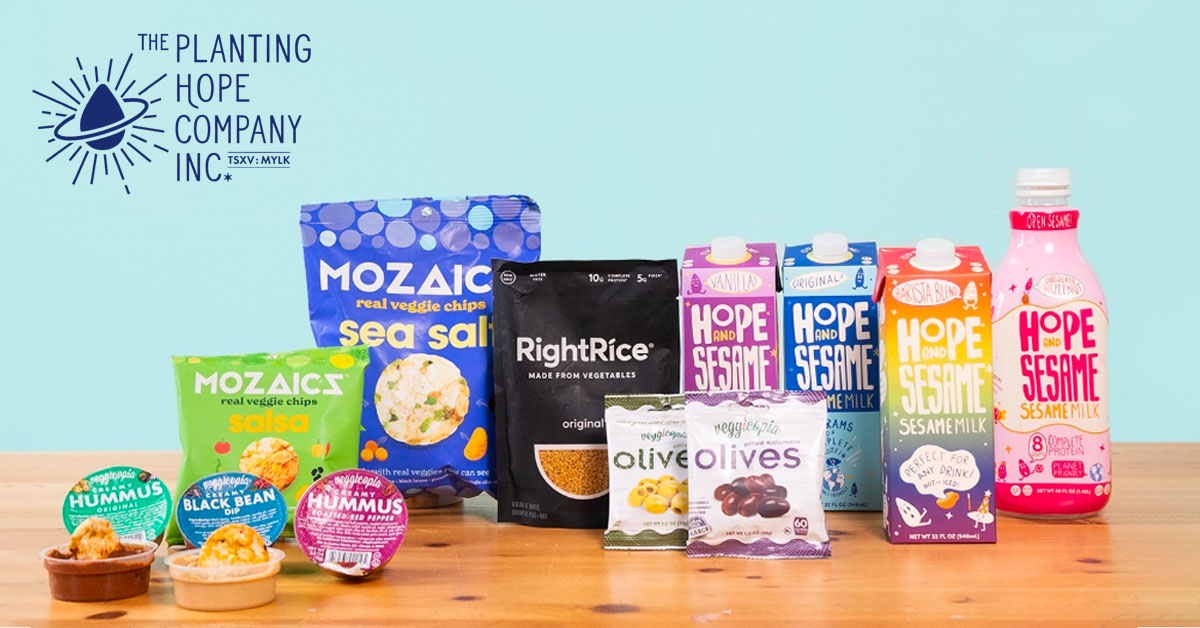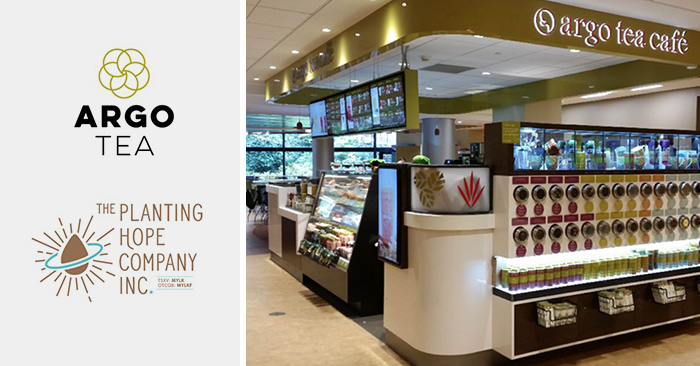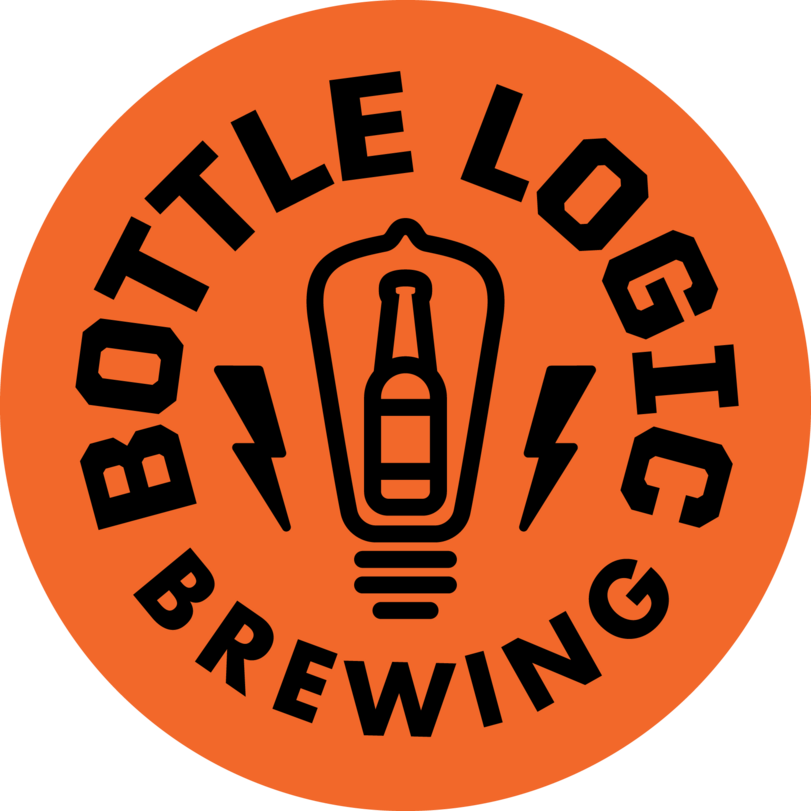With Eyes On Gen Z, Planting Hope To Grow “Deep Roots” In Foodservice

The rising costs of retail have pushed The Planting Hope Company to shift its growth strategy outside of the grocery store.
Late last month the plant-based food and beverage business announced plans to acquire QSR-cafe chain Argo Tea from Golden Fleece Beverages – marking a turning point in its new growth plan which centers on the managed food service channel. Earlier this year, the company also signed a deal with foodservice distributor DOT Foods.
“We feel very strongly that food service is the right place to be if you can get there,” said Julia Stamberger, Planting Hope co-founder and CEO. “Food service in the [CPG] industry has been significantly discounted as a development market over the last 20 years… In other words, if you were building a business that you wanted Nestle, ConAgra or Kraft to buy, then you needed to focus on retail ACV. Well, retail is extraordinarily expensive and it’s only become more so.”
Stamberger is aiming to buck a trend she sees among large strategics in the CPG space that consider foodservice to be “commoditized” or see it only as a stepping stone for younger brands to build proof of concept. For Planting Hope’s portfolio – which includes Hope & Sesame plant-based milk, Mozaics vegetable chips, Veggicopia dips and snacks, and RightRice – Stamberger believes the space offers more efficient returns as well as a low-risk test space for future retail innovation.
The new focus has been underway since the beginning of the year, Stamberger said, but the Argo acquisition accelerates its channel strategy shift by nearly 18 months. Per terms of the deal, Planting Hope will assume control of Argo’s eight cafe license agreements and existing partnerships with major foodservice distributors including Sodexo, Sysco, Aramark and Compass.
“We’re developing our business around managed food service… which is where we see the strong growth and opportunity,” said Julia Stamberger, CEO of Planting Hope. “Getting contracts and relationships with Sodexo and Aramark off the bat, gives us an opportunity to showcase the products… get in front of [these distributors], as well as to deepen our knowledge of the cafe space.”

While Planting Hope sees plenty of potential in its new partner, the business in its current form is not the powerhouse it may once have been. According to Stamberger, Planting Hope was introduced to Golden Fleece Beverages through a mutual investor because the cafe company was at yet another “inflection point.”
Chicago-based Argo Tea was founded in 2003 and built its business on company-owned cafes, later expanding that cafe footprint via licensing agreements to college, university and hospital campuses, she explained. Argo also sells a 3-SKU line of RTD teas. After an asset sale prior to the pandemic, Argo closed its owned cafes but kept the licensing arm in-tact.
However, the pandemic later shuttered many of the licensed cafes when college and university campuses closed down; the Argo team never revisited those contracts once students began to return so many locations “drifted off.” She estimates there are about 20 previous cafe licenses that could be reactivated.
As Planting Hope looks to rebuild Argo’s footprint, it has brought on Candace Pappas to serve as VP of foodservice business development. Pappas has worked for Argo for nearly 16 years, beginning in its cafes, and eventually excelled up through the ranks to her most recent role as President of Argo Tea. Stamberger herself also brings significant foodservice experience, having founded and run an airline food brokerage firm prior to Planting Hope and built and launched Delta airline’s first snack box program in 2004.
In addition to trying its hand at cafe operations, Planting Hope will continue to innovate within its existing brand portfolio, prioritizing a foodservice-first mindset and test products on cafe menus, which it maintains complete control over due to the license agreement structure. She highlighted that a popular Argo cafe item is also high on Planting Hope’s priority list to bring into bottles.
The company aims to be thoughtful with all new products, Stamberger said, and emphasized it will not abandon traditional retail channels, but highlighted the numerous challenges of building a brand in the space.
Following its acquisition of RightRice in January 2022, Planting Hope began to take a close look at its new and combined businesses. In addition to receiving “massive chargebacks” due to fulls pallet of slow-moving RightRice SKUs being sent to warehouses that didn’t have any distribution under them, the team recognized that much of the newly-acquired business was “transactionally unprofitable,” due to chargebacks from key retail accounts like Whole Foods. RightRice is now on-menu at QSR-chain Cava, a partnership that significantly benefited the brand’s bottom line, Stamberger said.
“Retail is death by a thousand cuts – with food service, you get paid on-time, in-full, net 30 terms, no deductions, and there are very few promotional programs required,” she said. “[In retail] you can get audited three years back by UNFI because some retailer, they claim, forgot to take an overbuy promotion on an LOI and now they’re taking $50,000 off of your check. So what’s more profitable? Foodservice is.”
Food service allows for SKU reductions, higher velocities, lower innovation demand and helps brands unlock efficiencies on key products much faster, she said. And with that, Stamberger believes the old CPG food business model of selling into major retailers, scaling up the business and exiting to a large strategic is dead.
“That whole thing – it is dead as a doorknob,” she said. “A lot of folks who are in the middle of it haven’t realized that yet [because] the old model is still underway. Well, we recognized that a new model is essential to drive towards earlier stage profitability and get you there faster, while minimizing spend on some of these other aspects.”


















